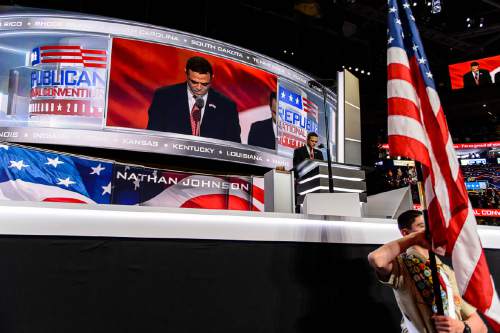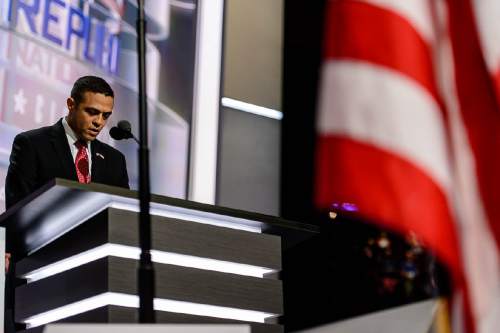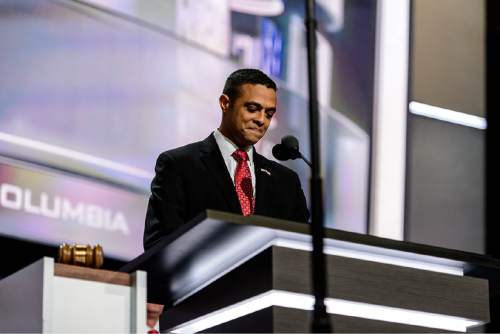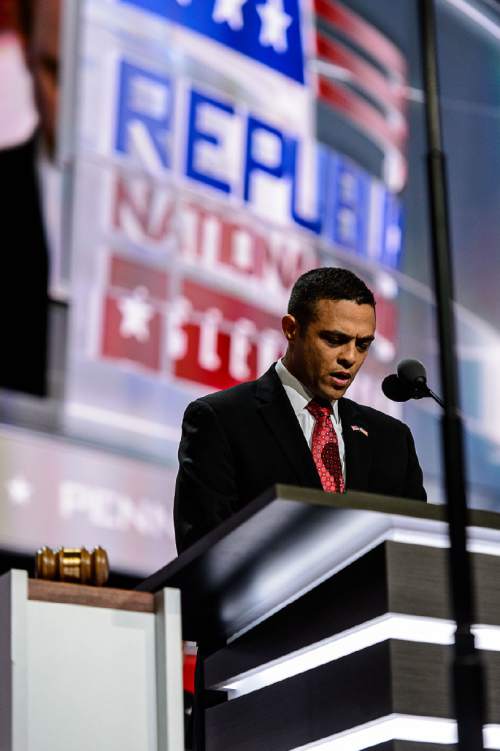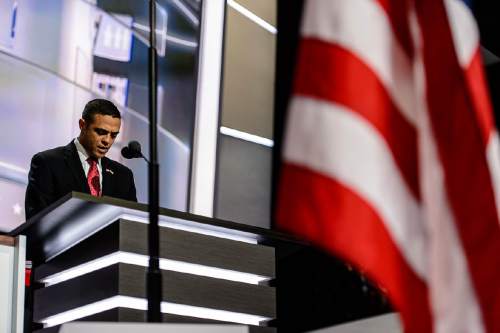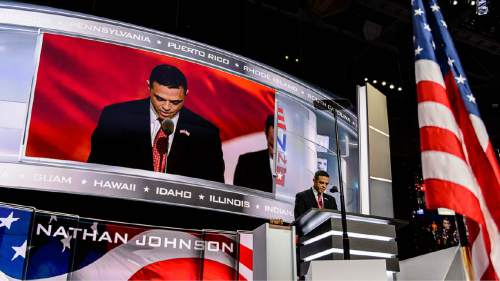This is an archived article that was published on sltrib.com in 2016, and information in the article may be outdated. It is provided only for personal research purposes and may not be reprinted.
Last week, Nathan Johnson, a black Mormon convert and a regional LDS Church leader in Ohio, offered an invocation at the Republican National Convention in Cleveland.
"Please bless all of our leaders, Father, that they may have wisdom and humility as they serve," Johnson, the second counselor in the LDS Kirtland Ohio Stake Presidency, prayed. "We ask, Father, that thee will bless our enemies, and we pray for those who oppose our ideals and seek to do us harm that their hearts will be softened."
Johnson's religious association was noted by many, but he was hardly the first or only member of The Church of Jesus Christ of Latter-day Saints to pray at a Republican National Convention.
LDS historian Christopher Jones notes in a Juvenile Instructor blog post that "four out of the last five [national GOP conventions] have featured invocations by Mormons."
In 2000, it was Steve Young, who was described as "one of the greatest quarterbacks in NFL history." In 2004, politicos tapped Deseret Book CEO Sheri Dew, and, in 2012, the task went to Ken Hutchins, a retired Massachusetts police chief who had served in an LDS stake presidency with Republican presidential nominee Mitt Romney. No Mormon prayed at the GOP gathering in 2008. Jones goes on to quote the four prayers and analyze their similarities and differences.
The prayers contain typical LDS verbiage and platitudes, the historian writes, but they are all "deliberately nonpartisan, likely a result of Mormons in the public eye being constantly aware of how their own partisanship might be inaccurately understood to be the church's."
The political contexts, however, changed from year to year.
Young's address to deity came in the wake of the scandal-plagued Clinton White House, he writes. Dew was seen as a gay-marriage opponent as that issue was heating up.
Hutchins was "suffering from leukemia and had just finished another round of chemo," Jones says. "It is that personal background … that shaped the content of his invocation … as he prayed 'for those who suffer, both physically and spiritually.'"
This year, Johnson's prayer, the blogger says, "struck a note of reason, rationality, and charity amidst a series of speeches decidedly less so."
Given both "the uncertain future of the Republican Party and the place of Mormons within it," he writes, "it will be interesting to see if future conventions continue to feature LDS participants."
Peggy Fletcher Stack


